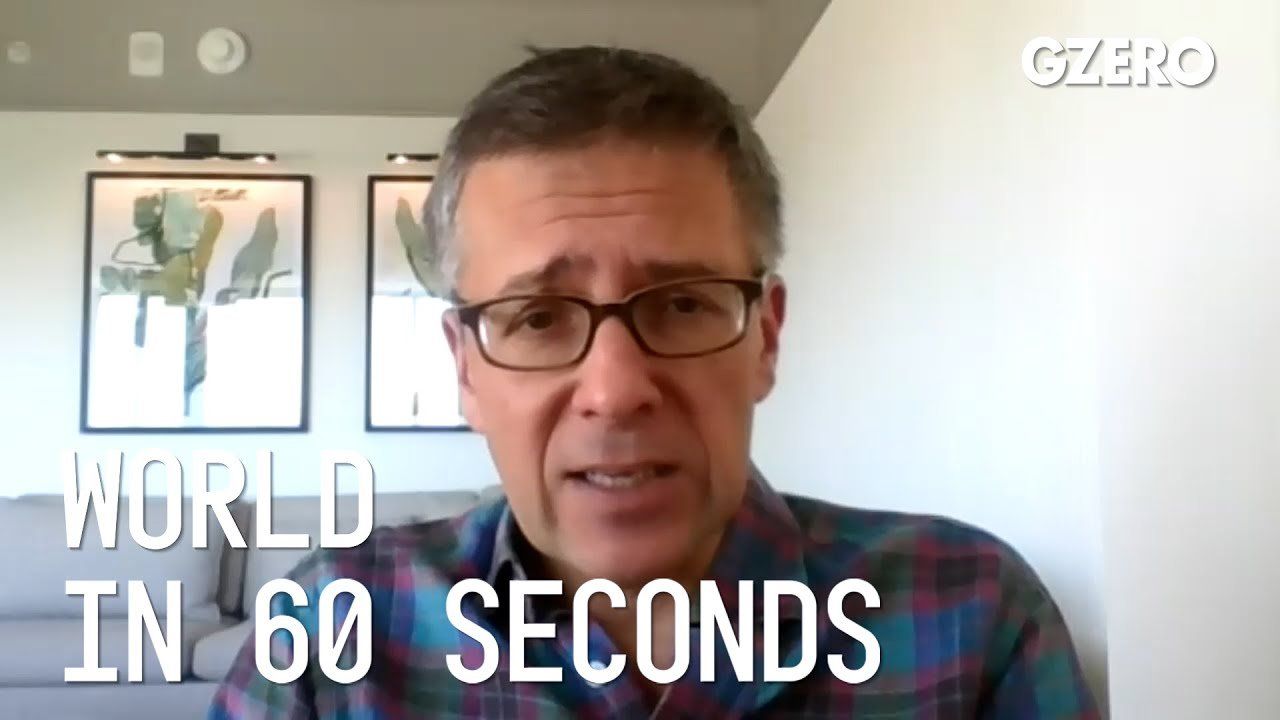Ian Bremmer shares his insights on global politics this week on World In :60.
Will the UK finally move past Brexit now that a Northern Ireland trade deal has been resolved?
Oh, it's only been, what, six years. My God. And Brexit finally concluded now that Prime Minister Sunak has taken on his own Conservative Party and said, "No, we're just going to finally move on this." And people are sick of the economic challenges, that's, in part, why Truss got washed out so quickly as former PM, and it's also why he had the space to get this done. It means that you're not worried about the so-called hard border between Northern Ireland and Ireland, and therefore, between the UK and the EU, and it means that the Brits can move on. But moving on, of course, still means that they no longer have integration with the world's largest common market, and that means that their performance economically will continue to drag below all of the rest of Europe and the United States, and that's really unfortunate. It's a massive own goal.
Will recent violence in the West Bank escalate into something more?
I expect so. I mean, keep in mind that you have no effective governance for the Palestinians in the West Bank or Gaza, you've got an incredibly right-wing coalition government led by Bibi Netanyahu, with only the thinnest of margins to keep the coalition intact, and no interest in moving forward on a two-state solution, and a great deal of interest in taking more land from the Palestinians. I saw an op-ed written in Haaretz, an Israeli center-left newspaper, just the other day, that claimed that Netanyahu was pushing forward a policy apartheid. You don't see that kind of commentary in Israeli newspapers about their own government. This all implies a lot more fighting between Israelis and Palestinians. The Americans inflectionally pushing from the sidelines, nobody really prioritizing the conflict or the issue, either in the region or in Washington, and certainly the Israelis and the Palestinians not having remote political interests try to back down and come to the table. All of that implies a lot more fighting going forward.
Why are Mexicans protesting AMLO's electoral law change as well?
Because he's trying to undermine the influence of the electoral commission. New legislation being put forward, some of it seemed to be against the Constitution and pushed back by the Supreme Court in Mexico, but some of it moving forward. People are angry, just like they have been in lots of countries, lots of democracies, where democratic institutions are getting weakened. For example, in Israel on the Supreme Court, you've seen massive demonstrations. That's basically what you're seeing right now in Mexico, an awful lot of people turning out on the streets, as we saw last weekend, against an effort to undermine checks and balances in a democratic country. The good news is that these democratic institutions are stronger and more resilient than a lot of the headlines would have you believe.
More For You
1,170: The number of high-rise buildings in Kyiv that were left without heating following a barrage of Russian attacks last night on Ukraine’s capital and its energy facilities, per Kyiv Mayor Vitali Klitschko.
Most Popular
What We’re Watching: US critical minerals summit, Rafah crossing reopens, Border violence in Pakistan
U.S. President Donald Trump and Japanese Prime Minister Sanae Takaichi hold up signed documents regarding securing the supply of critical minerals and rare earths, at a bilateral meeting at Akasaka Palace in Tokyo, Japan, October 28, 2025.
Representatives from the European Union, United Kingdom, Japan, and others will meet in Washington this week to discuss a strategic alliance on critical minerals.
Hard numbers: Large protests in Czechia, UAE-linked firm has large stake in the president’s company, & More
80,000: The number of people estimated to be in the streets of Czechia on Sunday to show their support for President Petr Pavel after he blocked the nomination of an environmental minister who performed the Nazi salute and posted Nazi memorabilia.
The US has started handing $1,000 to the bank accounts of newborn babies. But can policies like this one help boost sagging birthrates in advanced democracies?
